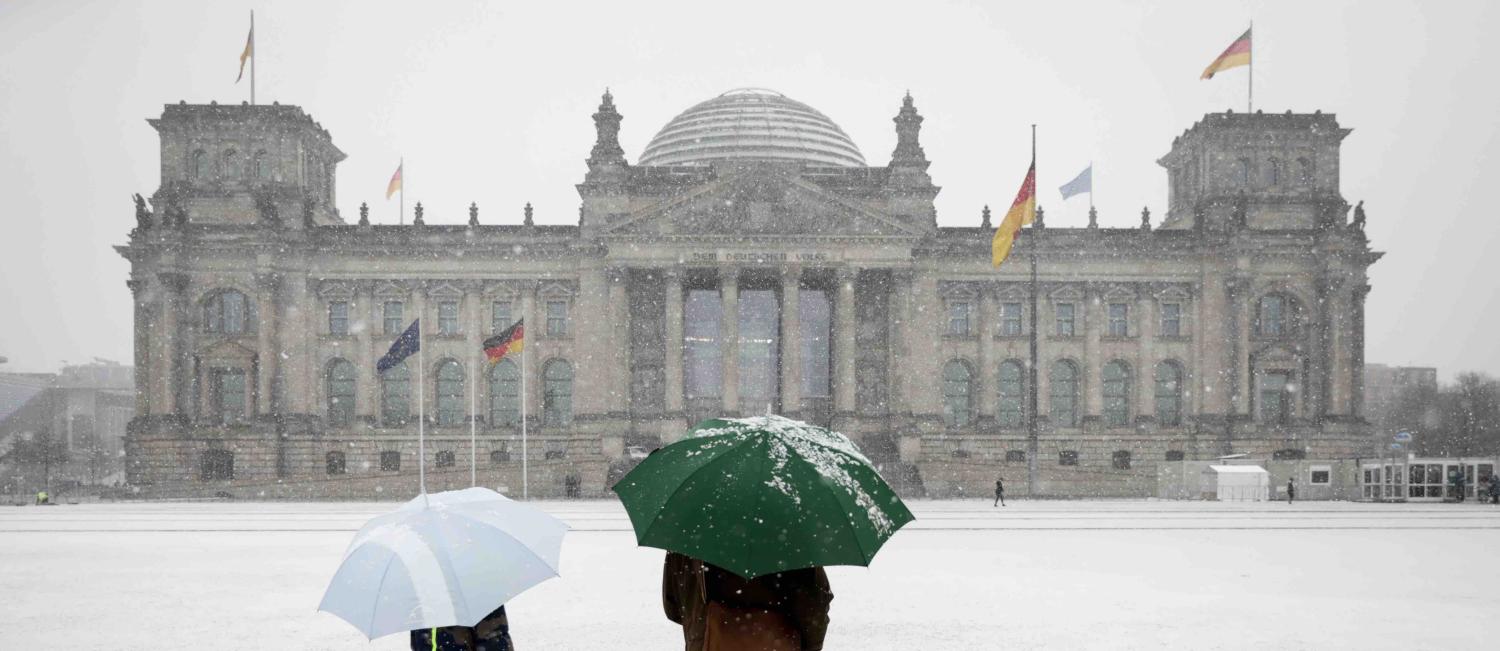Heckles, shrieks, denunciations, and counter-accusations: the nineteenth German Bundestag casts a vastly different impression to the staid, somnolent proceedings of yesteryear. Armed with a tactic of “permanent provocation”, the sudden appearance of nearly 100 representatives from the far-right Alternative für Deutschland (AfD) party has stirred German politics from its cosy slumber.
But is their presence of deeper significance than the mere sight of political ugliness on the nightly news?
Chancellor Angela’s Merkel’s 2015 resolution to open Germany’s borders to refugees was a political turning point. But it was also a lightning rod for pre-existing discontents.
For her populist enemies across Europe, Merkel’s name has become a metonym for the remoteness of political elites, the ascendancy of special interests, and German imperiousness within the European Union. Domestically, the picture is more complex. Given the circumstances in which she acted, most Germans at the time believed Merkel made the right decision.
But pretty much nobody believes the process since has been well-managed or thought through.
Complex discussions have continued about the necessary policy settings for the incorporation of hundreds of thousands of mostly Syrian refugees into German society. Two and a half years on, a political balance sheet is hard to draw: while not as seamless as optimists had hoped, the refugees’ integration has been far from the social catastrophe forecast by many.
But this has not diminished the AfD’s zeal, nor will it. For the AfD, principal success consists not in policy alternatives, but in the way it has shaped a new public debate on German identity.
As an example of the AfD’s influence aggravating Germany’s cultural angst, witness Bavarian premier Markus Söder’s provocative measure to install crucifixes on the walls of all public service buildings within his deeply Catholic state as a “profession of identity”. Or, perhaps more significantly, the recent appendage of the word Heimat (homeland) to the formal title of the Interior Ministry, headed by Horst Seehofer, Merkel’s most powerful internal critic.
Heimat refers to a spatial form of identity; to the locality or region with which one affiliates through childhood and memory. It offers permanence and stability in times of accelerated change and dislocation – a useful counterpoint to the rootlessness of “citizens of nowhere”.
Identity debates, of course, are neither new nor unique to Germany. But the twentieth century has demanded a very specific philosophical assessment of what it means to be German. This has conferred a distinctly German shape to the culture wars in which the AfD thrives.
Last year Björn Höcke, a firebrand nationalist and regional AfD leader, almost lost his position when he condemned the “memory culture” that had produced Berlin’s Memorial to the Murdered Jews of Europe, which he described as a “monument of shame”. Meanwhile, co-party leader Alexander Gauland last year implored Germans to be proud of their soldiers’ “achievements” in the Second World War.
The emphasis on “dealing with the past” has meant that the identity discussions undertaken by most other western European countries have tended to register less deeply. In 2010, Merkel famously declared that multiculturalism in Germany had “failed”. Yet, as the historian Rita Chin argues, this was a “curious” statement, “since Germany had never embraced any vision of state-sponsored multiculturalism”.
The preservation and adaptation of German traditions in an increasingly diverse and international continent is a debate of some urgency. Today, visitors even to international cities such as Berlin or Hamburg are still struck by the country’s ethnic and cultural homogeneity. But Germany’s discomfort both with its past and evermore powerful role in Europe today has stalled this discussion. The AfD gladly helps fill the resulting gap.
Yet culture and identity alone do not explain the importance of the AfD. As with any political insurgency, timing matters. The public collapse of the Social Democrats (SPD), Germany’s oldest political party, granted the AfD a rare gift. In some polls, the AfD even rivals the SPD as Germany’s second largest party.
This is of more than symbolic importance. It will weigh heavily on the choice of Germany’s next Chancellor and, by extension, the future direction of Europe.
As the Christian Democrat party (CDU) considers Merkel’s successor in the upcoming couple of years, it will be saddled with a dilemma: does it swing to the right in a bid to recapture the AfD vote, surrendering the political centre to the SPD and an increasingly self-assured Greens party? Or does it tolerate the nuisance of the AfD as a price worth paying for becoming Germany’s sole remaining major party? In Jens Spahn and Annegret Kramp-Karrenbauer respectively, Merkel has a possible successor in each camp.
Both options carry enormous risks. And each in its own way confirms, rather than negates, the permanence of the AfD in the country’s political landscape. Should the CDU fail to cover its right flank, the AfD may only strengthen. But a shift to the right would define Germany’s left–right divide as a cultural battle between nationalism and internationalism. This is not a debate the CDU seems capable of leading.
In its short history, the AfD has already assumed a multitude of forms. Its current explosive, populist manifestation may not be its last. Perhaps, like other insurgent parties, it will consume itself and vanish in a puff of dust. Perhaps it will “normalise”, ingratiating itself with the very political mainstream it currently defines itself against.
More likely, however, is that the AfD will survive in a more silent but ultimately more potent form: by infiltrating the attitudes and programs of its adversaries. Like Donald Trump’s victory did in the US, the electoral achievements of the AfD have fundamentally changed the political chemistry of Germany. Riding out the wave in the expectation of a “return to normality” is not an option.

